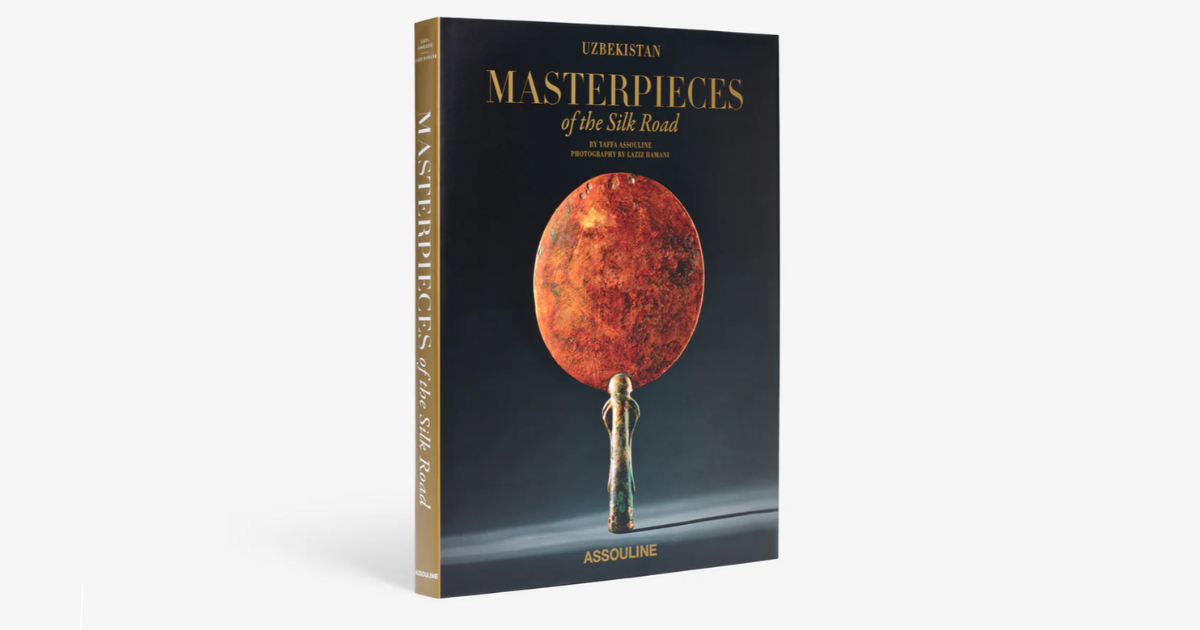“Music should be memorable”
The creative journey of Uzbek composer Dilorom Amanullayeva
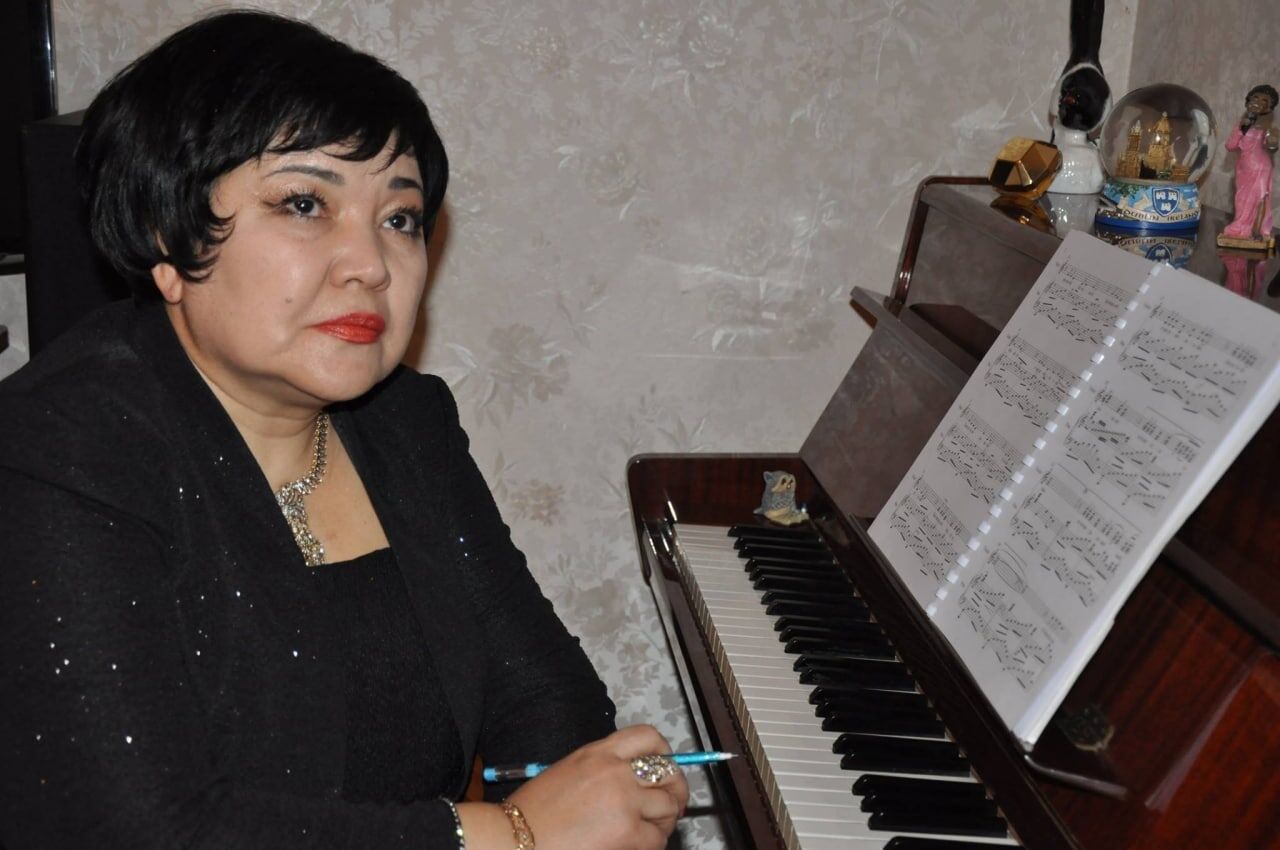
Undoubtedly, many Uzbeks have heard the anthem—the hallmark of the “Sharq Taronalari” festival—and other works by this talented composer at least once in their lives. Many of her songs became hits and were played in nearly every home at the time.
Honored Artist of the Republic of Uzbekistan, professor, recipient of the “Dustlik” order, and head of the pop singing department at the National Institute of Pop Art, Dilorom Amanullayeva, was born on October 1, 1959, into a family of musicians. Being a talented child, she began her music education early, studying piano under Professor A.M. Litvinov at the Special Music School named after V. Uspensky. Through her multifaceted creativity, Dilorom Amanullayeva has significantly contributed to the country’s music development.
The editorial team at Elle O’zbekiston congratulates the composer on her birthday and wishes her many more years of creativity and success!
- Tell us about your parents and your childhood. How did you choose this profession?
My profession is multifaceted; I am not just a composer. There are symphonic composers, and there are those who write music for songs. I write songs in two genres: for children and adults. I have written over 250 songs, with 100 dedicated solely to children, and they span different age groups.
My adult songs are diverse—not just pop music but also romances. For example, I have introduced innovation by creating a romance in the pop genre using the poetry of Nadira and Chulpan. I also write ballads and Uzbek jazz songs. All of this is published in textbooks—in 9 teaching manuals, to be exact.
Besides that, I write symphonic music. I recently completed another concert, returning to my first profession.
My second profession is teaching, which I inherited from my parents. My grandfather dedicated his life to education, opening schools in remote villages, and my father, Darvin Amanullayev, followed in his footsteps. He graduated from the conservatory’s “opera singing” department and worked as a professor and head of the music teaching methodology department at Nizami Pedagogical Institute. My mother was also a musician and educator.
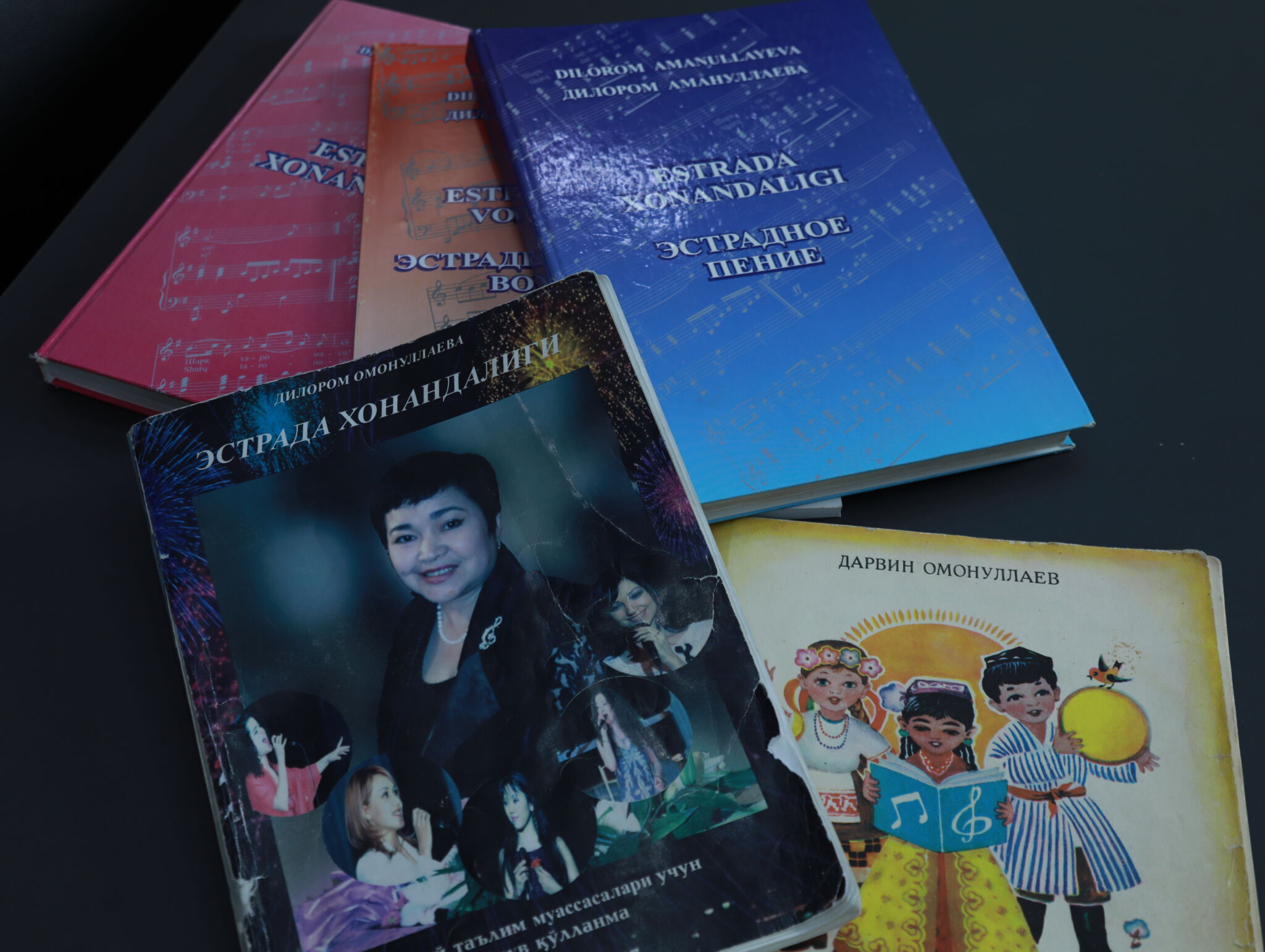
Учебные пособия для студентов от Дилором Амануллаевой и ее отца Дарвина Амануллаева
I followed the paths set by my family. At 12, I began studying composition professionally under my esteemed teacher, Boris Zeidman.
2. Have you always enjoyed your work, or were there moments when you considered changing professions? You have a beautiful voice—why didn’t you pursue a singing career?
In the ’90s, I started composing pop songs that eventually became hits. I could have sung them myself, and sometimes I felt I could convey them better. But my first husband did not share my opinion, and even my father was against it.
When I was 16, people wanted to make me a singer. I even started preparing a repertoire and was supposed to participate in a music festival. But my father intervened and said, “You have a gift for composition that not everyone has. You need to establish yourself as a composer.” I had to choose between composing music or continuing to sing. He feared that I would fully immerse myself in the pop scene and abandon composing.
There were moments when I cried, especially when I had to give my songs to other singers to make a living. But the performances I got from them didn’t meet my expectations as the composer. I had a different vision. My dream of a singing career, which always burned within me, never materialized.
However, my most popular songs were beautifully performed by the talented singer Kumush Razzakova. She was the main interpreter of my work, and we had an ideal creative partnership. Those hits brought fame not only to her but also to me.
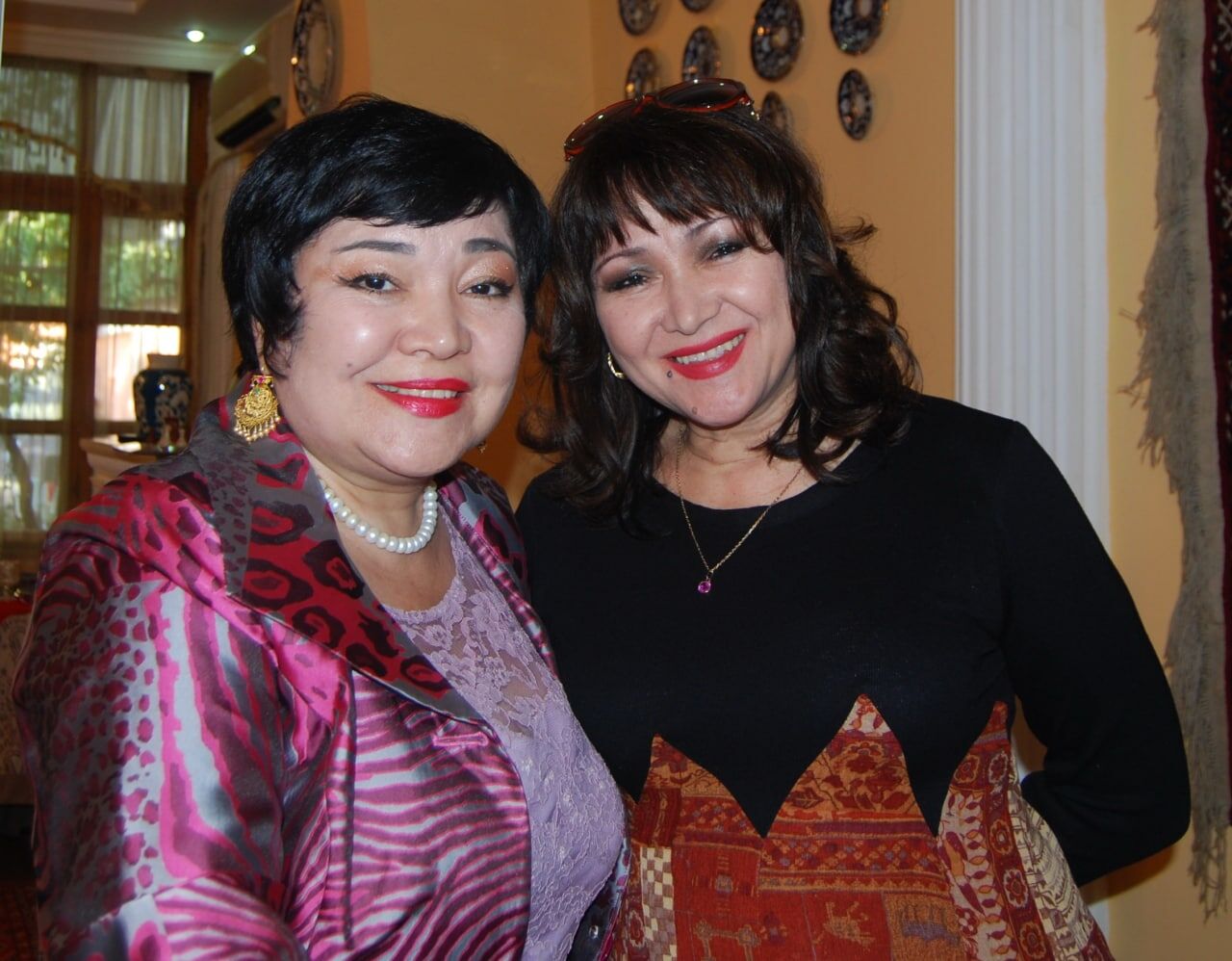
Дилором Амануллаева и певица Кумуш Раззокова
3. You once planned to compose a piece about “Bibikhanym.” Is it still in the planning stage, or have you begun working on it?
When I was 20, during a trip to Samarkand, I saw the Bibikhanym Mosque in ruins. Despite its dilapidated state, I was deeply moved. I returned home, and a piece titled “By the Ruins of Bibikhanym” came to life. After that, other pieces followed: “Gur-i Amir,” “Garden of Winds/Bogi Shamol,” and “Ulughbek’s Stars.” In the ’90s, “By the Ruins of Bibikhanym” became very popular; pianists performing abroad brought the piece to the world.
The image of Bibikhanym has always been in my mind. It’s the main theme of my work, running through my life and reflected in my compositions.
I have always dreamed of creating a musical or some piece in the pop genre on this theme. But this requires professional libretto and serious collaboration with a poet. So far, no poet has been ready for such a project. I have tried to engage several poets but without success.
4. You have composed two ballets—tell us about them.
One night, I dreamt of Amir Timur, and in my dream, he told me: “You will compose 30 pieces and perform them in the square.” Interestingly, he mentioned the number “1362” and opened a scroll. I remembered this number and wrote it down. Later, I discovered that in that year, Timur was injured in the leg, which led to his nickname “Tamerlane” (Timur the Lame).
Music poured out of me after that. Then came the pandemic in 2020. I learned to use the Sibelius program (a music notation editor) and composed an entire ballet in almost a year. I then transcribed several parts of the Amir Timur ballet, which gained global popularity.
Recently, I finished another ballet called The Silk Road.
I hope these works will one day be performed on stage at our theater.
Many works depict Amir Timur as a ruthless conqueror. But I wanted to show him from another perspective—as a cultured man who valued art and literature. Wherever he traveled, he brought the best masters with him. He was a patron of scholars and treated them well. He was also a great chess player, and no one could defeat him. In difficult moments, he relaxed by playing chess. I have read many books on him, but I believe the definitive book about this wise commander has yet to be written.
5. What’s important to you in music? What do you aim to convey?
I don’t want to create music that people leave behind, never wanting to hear again. I always ask the performer’s opinion. For instance, if I’ve written a piece for violin or piano, and they say, “Dilorom Darvinovna, this part repeats itself, maybe we could change this section,” I consider it and possibly make changes. When working on vocal pieces, I listen to my weaknesses when working with students, and sometimes I rework sections. Creativity requires refinement to reach the highest level.
My students have often inspired me, sparking new ideas. I draw inspiration from good people, and the creativity I gain from interacting with them leads to new music.
There are feelings and logic in my music. Music should be memorable—it should be written so that after hearing it once, people remember it.
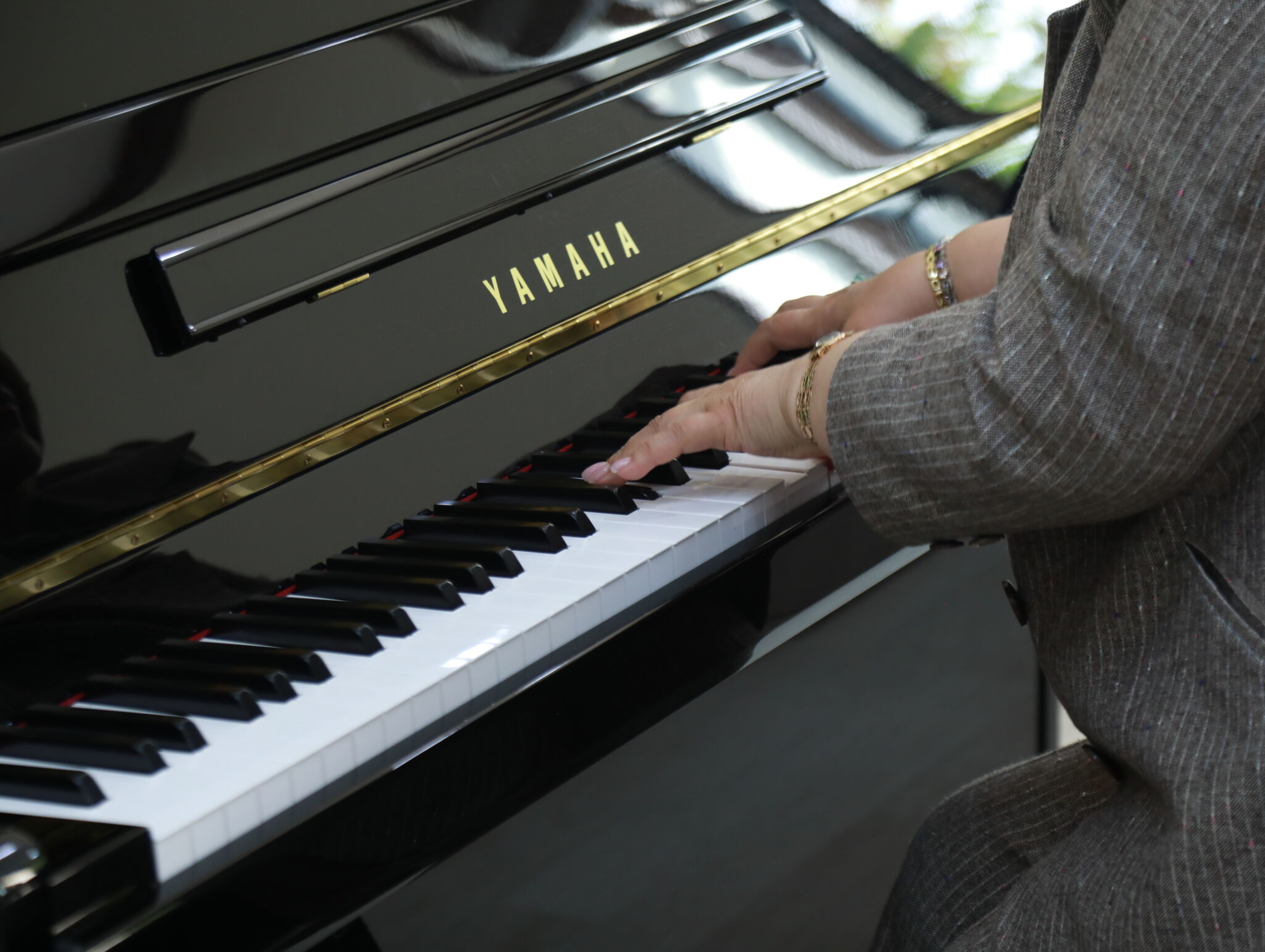
I studied at the Uspensky school. My favorite composers were Bach, Beethoven (whose music always amazed me), Chopin, Tchaikovsky, Rachmaninoff, and Rimsky-Korsakov. Then, I unexpectedly discovered the French Impressionists Debussy and Ravel. I heard Ravel’s orchestration of Rimsky-Korsakov. Later, I found Shostakovich and Prokofiev, without whom I cannot live today.
7. What music makes you want to cry?
Classical music that comes from the soul—for example, Chopin’s music. Despite his short life, his compositions are full of vitality. I listen to his music, and it makes me cry. Sometimes, I even cry when I’m writing my own music.
